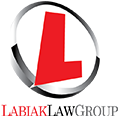Are you someone who is tired of creditor calls? Are you covered in debt up to the brim?
Well, you’re not alone. There are tens of thousands out there who are battling to sustain through the economic crisis with ‘filing Bankruptcy’ as the only option left to them.
That being said, Chapter 7 bankruptcy or Chapter 13 Reorganization is the best way to get rid of debt and arrange a way for people to attain a “new beginning”.
When an individual or company files for bankruptcy in California, the insolvency course can either waive a person’s obligation to pay a debt if the debt can be freed under present bankruptcy rules or compel creditors to obtain a court-sanctioned reconstructed payment plan.
Chapter 7 Bankruptcy
Chapter 7 is one of the most prevalent bankruptcy proceedings filed by individuals or couples. The law is called a “regular” Bankruptcy lawsuit where a person or business (self-employed person that is not an enterprise) (the “Borrower”) can file a bankruptcy plea to get rid of their debt responsibilities.
Debtors or Borrowers can file for Chapter 7 regardless of how small or big their debt constraints are. In majority proceedings, most, if not all, of the borrower’s possessions can be safeguarded.
Chapter 13 Reorganization
When you call for bankruptcy in California under Chapter 13 Reorganization, you pay back all or a portion of your debt through a 3-to 5-year repayment program. This is usually filed by people running into foreclosure on their house, or people who may want to retain these properties that might not be covered in a Chapter 7 bankruptcy or others that are not qualified to file Chapter 7.
Under this, you will propose a repayment program in front of a judiciary. After proposing the program, you will need to begin making payments to the bench (who then pays your borrowers) within a month from the date you presented your case. Even though creditors disagree with the submitted repayment program, the court has the final say.
As soon as your program is sanctioned, you can start making payments to the bench. The day you complete your Chapter 13 payment program, any overdue dischargeable debt is freed and you no longer hold any accountability for it.

